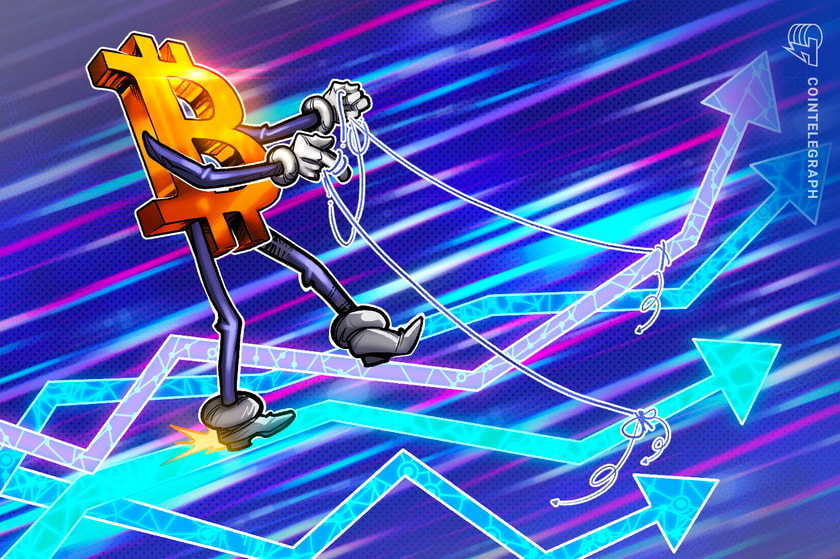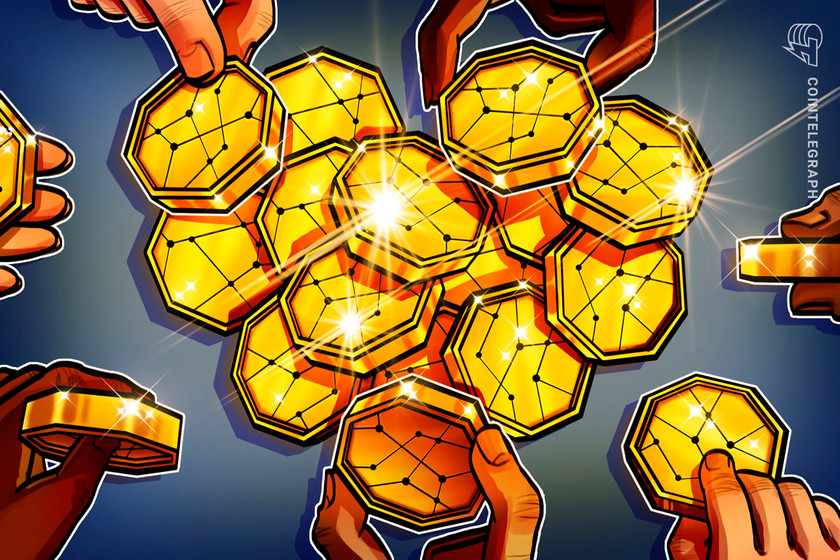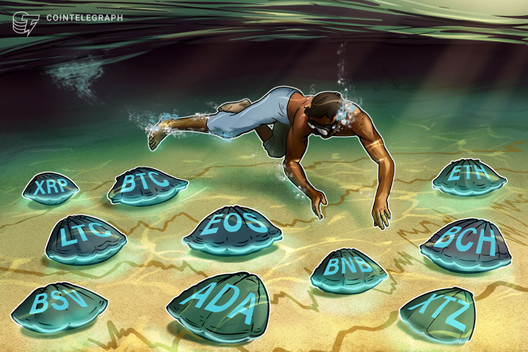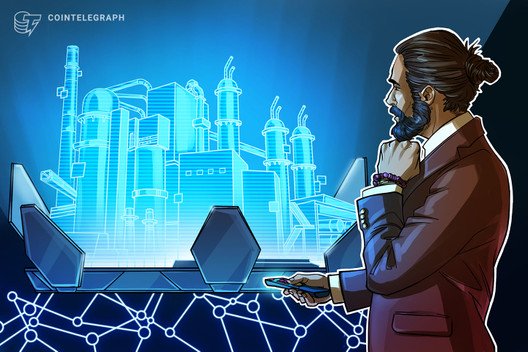15 crypto leaders’ tips for devs moving from Web2 to Web3
Professionals navigating the tech industry have seen more than their share of ups and downs recently. The employment environment has swung from talent shortages, with companies of all sizes scrambling to land and keep tech talent, to rounds of layoffs at industry giants like Amazon, Google and Microsoft. Forward-looking developers may well decide it’s time to stop focusing on Web2 companies and products and start learning the ins and outs of the burgeoning Web3 world.
While crypto companies are eager to welcome the next generation of Web3 devs, the process isn’t as simple as updating and sending out a résumé. Web3 is a whole different ecosystem with new technology and fresh ideas, and any Web2 developer looking to make a transition has a learning curve to conquer first. Below, 15 members of Cointelegraph Innovation Circle—all crypto and Web3 pioneers—share their advice and experience for devs seeking to make the move from a Web2 to a Web3 world.
Embrace decentralized thinking
One crucial tip for developers transitioning from Web2 to Web3 products is to embrace decentralized thinking. Understand the principles of blockchain, smart contracts and the shift from centralized control to user empowerment. This mindset shift is essential for designing and building successful Web3 products that truly leverage the benefits of blockchain technology. – Vinita Rathi, Systango
Stay focused on meeting users’ basic needs
While Web3 offers plenty of disruptive potential to decentralize and democratize, it’s important to remember that for mass adoption purposes, Web2 and Web3 users are effectively the same audience. Make sure your brand stays focused on how it’s meeting users’ most basic needs — such as speed, cost or convenience — rather than starting the next revolution. – German Ramirez, THE RELEVANCE HOUSE AG
Connect with other developers in the ecosystem
Community is a major strength of Web3, and this is also true for builders. Events like hackathons are a great way to meet people who can answer your questions about blockchain development, and you can also find some very helpful online communities on platforms like Telegram and Discord. – Wolfgang Rückerl, ENT Technologies AG
Become well-rounded and constantly learn
Listen, learn and understand technology outside of what Web3 and cryptography embrace. For example, technologies such as artificial intelligence are already realizing product-market fit alongside emerging Web3 products. Companies will demand that you be familiar with how other industries function to envision the bigger picture of our ever-changing digital future — beyond just Web3. – Megan Nyvold, BingX
Ensure you understand the fundamentals of blockchain
When making the jump from Web2 to Web3, it’s vital you understand the fundamentals of blockchain technology. Educate yourself on decentralized systems, smart contracts and cryptography to be fully cognizant of the unique challenges and opportunities Web3 development offers. – Anthony Georgiades, Pastel Network
Build with genuine passion
Making the move from Web2 to Web3 requires a shift in mindset. Build with genuine passion, seeking guidance from experienced advisers, and develop a deep understanding of blockchain technology. Additionally, staying actively engaged with the community and connecting with other active developers in the space can ensure you are at the forefront of this rapidly evolving field and can create impactful and sustainable decentralized products. – Myrtle Anne Ramos, Block Tides
Be ready to embrace the space in full
Moving from Web2 to Web3 may seem like a smooth transition, but that couldn’t be further from the truth. The Web3 space is a whole new realm and one that needs to be fully understood before you enter it. This isn’t just a technology-related change, but a communal and people-related change, too. There are many areas you need to understand about Web3, and being open and ready to embrace it all is vital. – Ilias Salvatore, Flooz XYZ
Know that there’s uncertainty in the Web3 world as well
Developers who are making a transition from Web2 to Web3 should always keep in mind that, as a dynamic world, Web3 can often be very unpredictable, especially during times of a funding crunch. This can often result in layoffs or substandard salaries. Developers should get ready to absorb these shocks or even temporarily return to their Web2 profession if needed. – Abhishek Singh, Acknoledger
Understand the concepts of collaboration and user empowerment
Fully embrace decentralization. Immerse yourself in blockchain, smart contracts and trustless peer-to-peer dynamics. It’s not just technical; it’s a shift toward open collaboration and user empowerment. Comprehend the move from centralized control to community-driven governance. These concepts are crucial for success in Web3 product development, which is focused on fostering innovation and inclusivity. – Sheraz Ahmed, STORM Partners
Blend your existing skills with new capabilities
Imagine Web2 as classic arcade gaming, with set rules and confined playfields. Now, think of Web3 as being like entering a virtual reality universe, with dynamic landscapes and AI allies. You don’t discard your joystick mastery; instead, you blend it with VR maneuvers. Keep your high scores, unlock new achievements and remember: In this game, the network and nodes define your next move! – Arvin Khamseh, SOLDOUT NFTs
Don’t just adapt; unlearn
In Web3, it’s not the code that’s king, but the community. Instead of perfecting backend logic, focus on front-end transparency. Dive not just into decentralized applications, but also into a decentralized ethos. In this realm, it’s less about server uptime and more about consensus uptime. Web3 isn’t just a tech shift; it’s a paradigm flip. – Tiago Serôdio, Partisia Blockchain
Learn the principles needed to build truly Web3-native solutions
Embrace the decentralized mindset. Transitioning from Web2 to Web3 isn’t just about learning new programming languages or tools; it’s a paradigm shift. Understand the principles of decentralization, immutability and trustless transactions to design truly native Web3 solutions. – Maksym Illiashenko, My NFT Wars: Riftwardens
Explore decentralized protocols and platforms
Understand the principles of decentralization and its impact on application design and architecture. Explore the decentralized protocols and platforms that provide the infrastructure for building Web3 applications. These platforms often offer tools, libraries and frameworks that simplify the development process, providing access to decentralized features, from smart contracts to decentralized identity. – Tammy Paola, Zerocap
Prioritize robust security practices
One valuable tip is to prioritize understanding and implementing robust security practices. The decentralized Web brings new security challenges, and understanding smart contract vulnerabilities, maintaining data privacy and ensuring secure transaction pathways are crucial. In the blockchain space, where hacks can be devastating, a strong foundation in security protocols is paramount. – Tomer Warschauer Nuni, Kryptomon
Break with centralized consolidation
Each iteration of the Web has signaled a dramatic shift from its predecessor in how content is produced and accessed. Web3 companies should embrace a return to the user-centric, community-focused amenities that inspired first-wave builders. By breaking with the centralized consolidation that occurred under Web2, leaders stand to reinvigorate the sense of wonder that once thrived in our online spaces. – Oleksandr Lutskevych, CEX.IO
This article was published through Cointelegraph Innovation Circle, a vetted organization of senior executives and experts in the blockchain technology industry who are building the future through the power of connections, collaboration and thought leadership. Opinions expressed do not necessarily reflect those of Cointelegraph.









